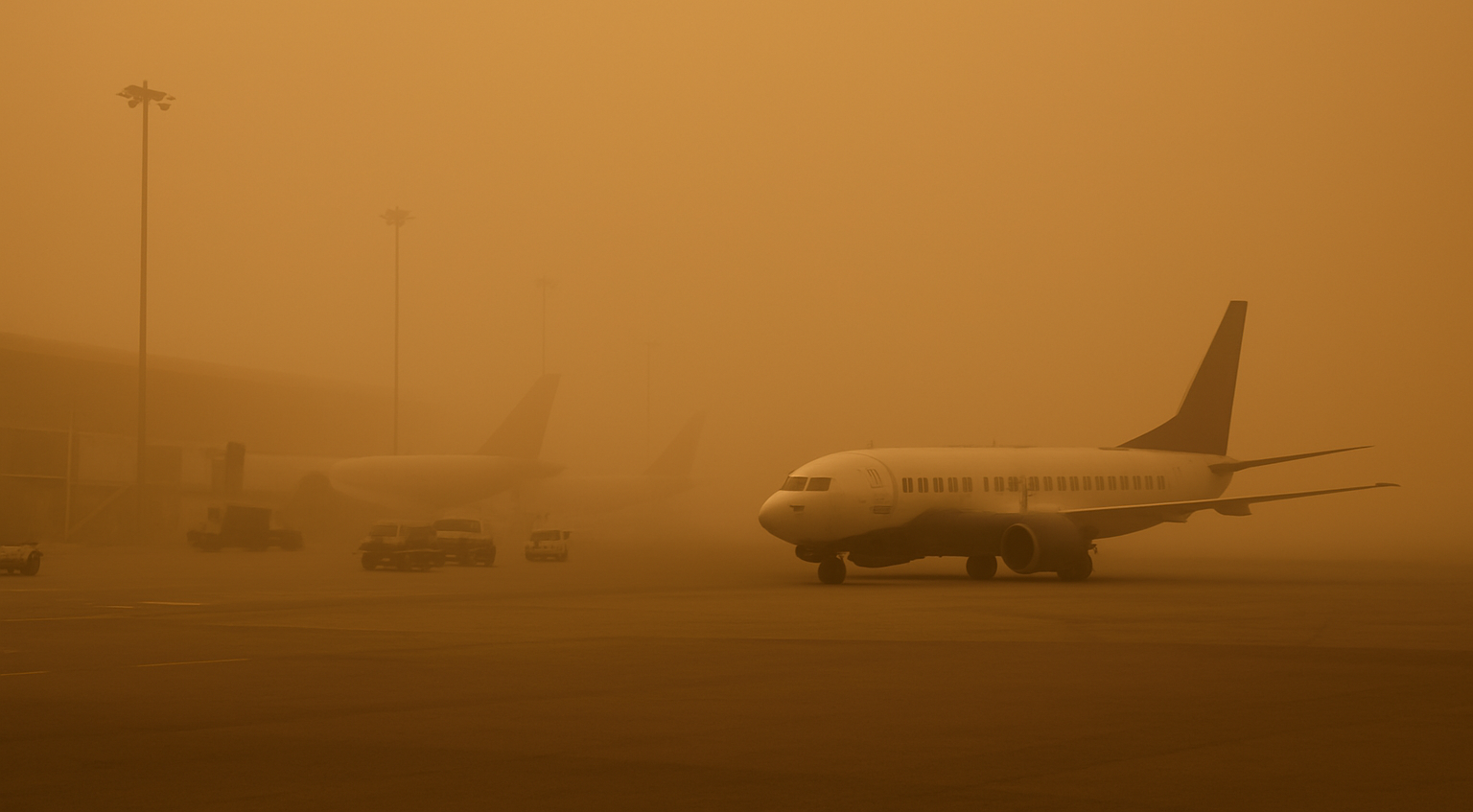A sudden and intense dust storm disrupted operations at Indira Gandhi International, IGI Airport on Friday evening, diverting over 40 incoming flights and causing ripple delays that impacted more than 350 departures the following day. The powerful thunderstorm, with winds gusting up to 74 kmph, struck the capital around 6:30 PM, plunging the country’s busiest airport into turbulence.
Air Traffic Control (ATC) was forced to suspend all operations for approximately 45 minutes due to drastically reduced visibility and wind shear, halting take-offs and landings during peak evening hours. The shutdown cascaded across airline networks well into Saturday, resulting in widespread delays and cancellations.
Between midnight and 2 PM on Saturday, over 350 flights departing from IGI experienced delays averaging 40 minutes. Airlines struggled to manage logistics as stranded aircraft, diverted schedules, and limited parking space disrupted normal functioning. Some carriers resorted to cancelling flights outright to stabilize operations.
In addition to affecting aircraft in the air, the storm made ground handling at airports more difficult. The main runway at IGI is presently closed for an upgrade, which puts more demand on the runways that are still in use and causes delays.
The brunt of the storm’s wrath fell on the passengers. Many of the thousands who were stuck at the terminals complained about the lengthy wait times and inadequate communication. Although airport officials and airlines hurried to help impacted passengers and update schedules, the magnitude of the disruption proved too much to handle.
Friday’s storm is a stark reminder of the vulnerability of air transport infrastructure to sudden weather events. Experts have frequently warned that the growing frequency of extreme weather, linked to climate change necessitates more robust contingency planning for aviation hubs like IGI.
While flight schedules are gradually returning to normal, recovery remains slow due to continued airspace congestion and residual crew displacements. Authorities have yet to provide an official estimate of the total economic impact caused by the delays and cancellations.
As the aviation sector prepares for the summer vacation rush ahead, Friday’s happenings pose vital questions regarding Delhi airport’s weather-readiness and the imperative for infrastructural resistance to natural interruptions.
Also Read: Airbus’s Single-Pilot Plan: Impact on India








